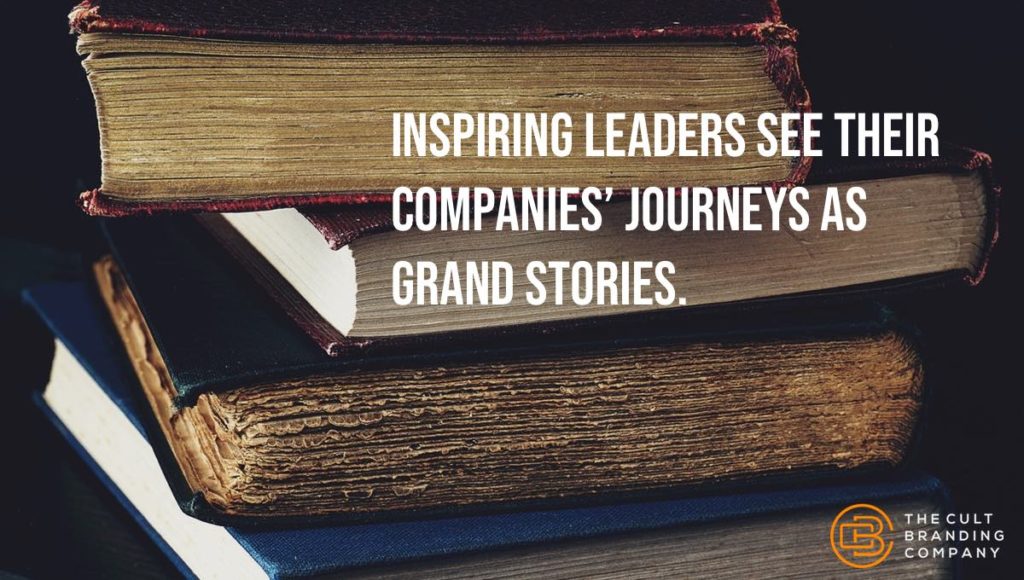
Why are we drawn into stories about adventures? What is our fascination with journeys traveled by characters like Harry Potter or Katniss Everdeen or Washington crossing the Delaware or the fabulously named Rough Riders?
Mythology expert Joseph Campbell tells us that these adventures are all part of the hero’s journey—a schema laid out in his ground-breaking book The Hero with a Thousand Faces. The heroic quest predates written language and its primary structure can help guide teams through massive changes. This story structure is all but hardwired into the human brain: We tell stories this way because stories that follow this pattern release transformative psychological power.
You already know how crucial storytelling is in business, especially for branding, PR, and marketing.1 Stories can improve understanding, make ideas more accessible, and make us feel emotions that compel us to action.2 3 4 But, storytelling can also help us conceptualize the future. In great leaders’ hands, great stories can help guide teams through change. The heroic quest format is one of the most powerful kinds of stories and you can leverage its narrative arc to empower people.
Inspiring leaders see their companies’ journeys as grand stories, with their teams playing an active role in the narrative. You can think of the heroic quest as an ideal template: A likable hero answers the call to adventure, overcomes obstacles that test his resolve, and finally gains the object of his desire in triumph (or falls short in tragedy).
A business’s journey toward a goal isn’t all that different: There’s the beginning, when an idea is formed and gains support; a middle, when a team must fight and slog through hard work to make the vision come alive; and an end, when the venture either succeeds or fails.
A great leader doesn’t just tell their company’s story to their team the way they see it. They also go searching for others’ points of view. By listening empathetically, leaders can know where they are in the narrative and keep everyone moving toward their shared quest.
When you tell stories, you become a torchbearer, lighting the way for your people to grow and succeed.
MINIQUEST: Identify the three most powerful stories that people in your company share. In what sense are they Adventures? Heroic? Empowering? What values do these stories share with your company culture?
- Rachel Gillett, “Why Our Brains Crave Storytelling In Marketing,” FastCompany.com, 2014. ↩
- Paul J. Zak, “Why Your Brain Loves Good Storytelling,” HBR.org, 2014. ↩
- Annie Murphy Paul, “Your Brain on Fiction,” NYTimes.com, 2012. ↩
- Paul J. Zak, “How Stories Change the Brain,” Greater Good Magazine, 2013. ↩
